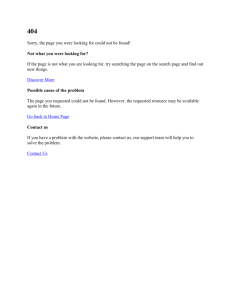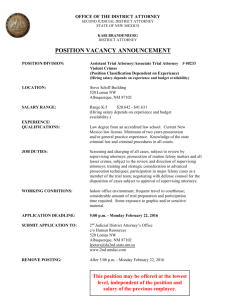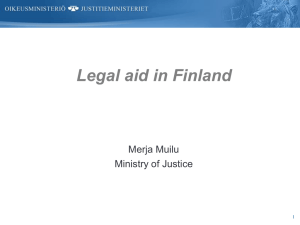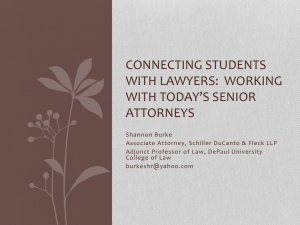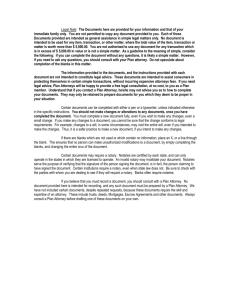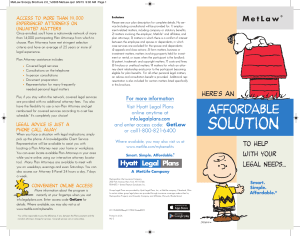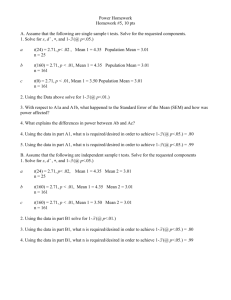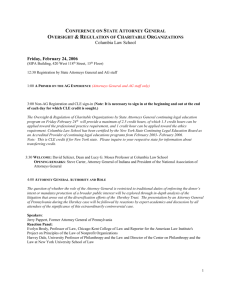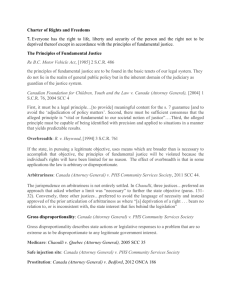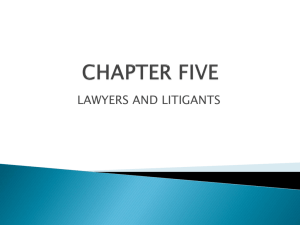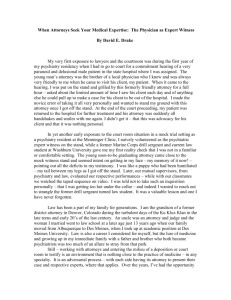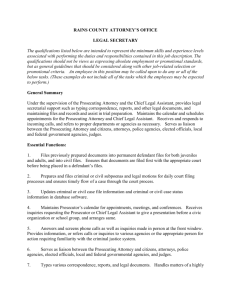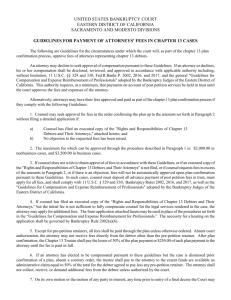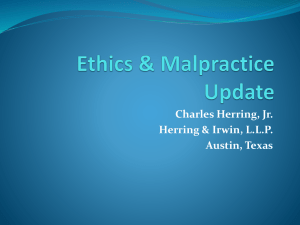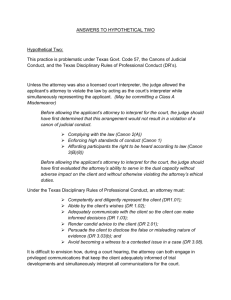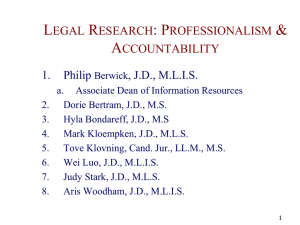Preparing for Court
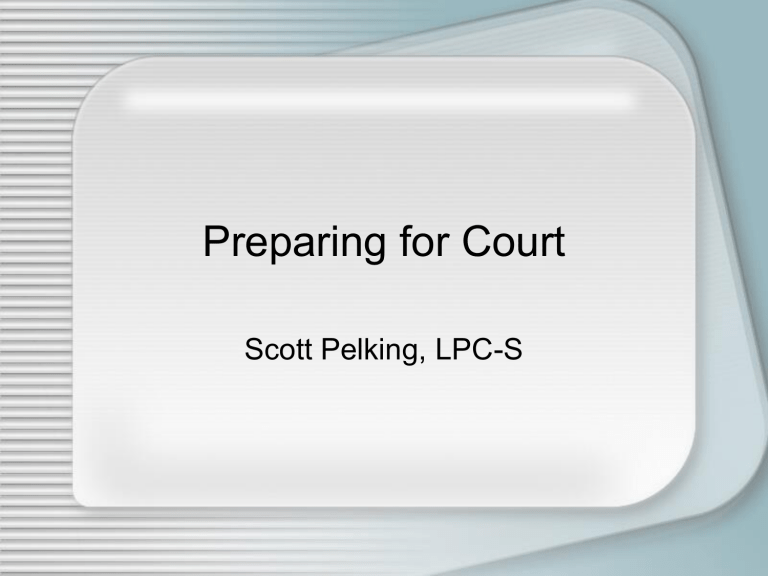
Preparing for Court
Scott Pelking, LPC-S
DISCLAIMER
I am not an attorney, and the information conveyed in this presentation should not be construed to be legal advice. It is no more than a reflection of literature, information gathered from other workshops, and personal experience.
In all instances regarding the law, please consult your own attorney.
Documentation
You did document your cases, didn’t you?
Progress notes vs. clinical
(psychological) notes
• Progress notes consist of primarily of demographic information, mental status, progress made, and the plan for the next session. These are usually required by insurance companies and requested by the court.
Progress notes vs. clinical
(psychological) notes
• Psychological or clinical notes are those narrative notes which describe and analyze the particulars of the session.
These may be kept separate from the progress notes and may go to court if they are specifically requested.
Writing with court in mind
• Whenever you write a progress or clinical note, assume that one day it will end up in court.
• Keep your notes clear and your opinions clinical.
• Use good grammar.
• Avoid complex sentence structure –it’s a note, not a work of literature.
• If a note can be misinterpreted, it will be –or will seem to be. Avoid ambiguity as much as possible.
Reviewing notes prior to court
• Always review your notes before they are sent to the attorney who requested them.
• Ensure that they are complete, in chronological order, dated, signed, and are for the right client .
• If clinical notes were not specifically requested, check with your supervisor
(or, better yet, your attorney) about not sending them.
Interpreting your notes
• Preview your notes the day before you go to court. It’s often wise to flag important information so you can access the page quickly.
• Scan your notes when you arrive at the courtroom and before you testify.
Remind yourself of any information your client’s attorney requested of you.
Interpreting your notes
• Know what you’re talking about.
• Focus on important facts, and be prepared to explain any of your comments. REMEMBER: The attorneys will usually have copies of your documentation, and they will be following it word for word.
Interpreting your notes
• Don’t say any more than what was asked for. Remember: ATQASU
(answer the question and shut up).
Reading your own writing
• Use standard, accepted abbreviations if you must use abbreviations
• If you really can’t read a note, admit it rather than try to fake it.
• Be sure that you can correctly pronounce the words in your notes – especially the client’s name, the diagnosis, and any technical terms you may have used.
Dealing with Records
Requests and Subpoenas
Confidentiality/HIPPA
Include copies of permissions with the documentation
Include documentation covered by the permissions ONLY; you may need to acquire additional permissions for documentation not specified in original permissions document
Joint Custody
Ensure that you have permissions from both parents
Make sure that the request for documentation is legitimate, and not a “fishing expedition” of one party towards another. You may consider a clinical summary as opposed to releasing the notes.
“Reasonable Time”
o The court must give you a reasonable amount of time to respond to the subpoena: at least 24 hours.
o Subpoenas may be blocked, but only by an attorney and only for reasonable causes.
The Court Environment
• Adversarial vs. nurturing
– Realize that attorneys have a job to do, and that they are used to “winning” and
“losing” cases.
– You will be tested.
The Court Environment
• “Drama” of court
– Attorneys at time acknowledge that the court proceedings are like a play, and you are a secondary player
– Much of what goes on is “for show,” trying to convince the judge or the jury to prefer one side over the other. That doesn’t mean that it’s not important, or you can’t get hurt.
The Court Environment
• Understanding your role
– Factual witness:
• you may not opinions about your findings
• You may only answer “yes” or “no” questions
– Expert witness
• You may--and are expected to--give your professional opinion
• Must be established before the court
The Court Environment
• Dealing with nervousness
– For whatever it’s worth, the attorneys are nervous, too.
• Holding your temper
– Very important in order to help your client; remember your role in the proceedings, remember that the environment is different, and the game is different as well.
Things That May Prove Helpful
Having--and being able to explain--your therapeutic theory and being able to show how it is applied to your therapy, as demonstrated in your notes
(actually, you’re
required
to do this)
Things That May Prove Helpful
Understanding testing and validity (if you have done testing or are using test data to substantiate your diagnosis and treatment plan). For example, how does one violent act on a client’s part not invalidate his profile for nonviolence according to your testing results.
Things That May Prove Helpful
Be able to explain clinical concepts in layman’s language, and how your treatment is valid in addressing your client’s issues. How do you translate what happens in your therapy session to people who don’t understand what
we
do?
